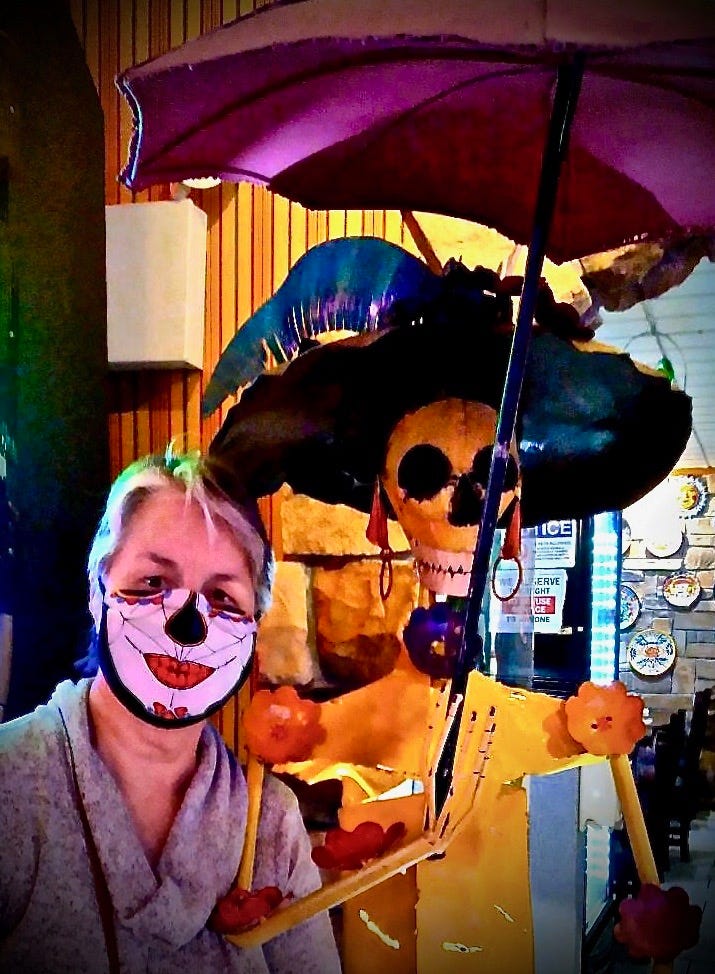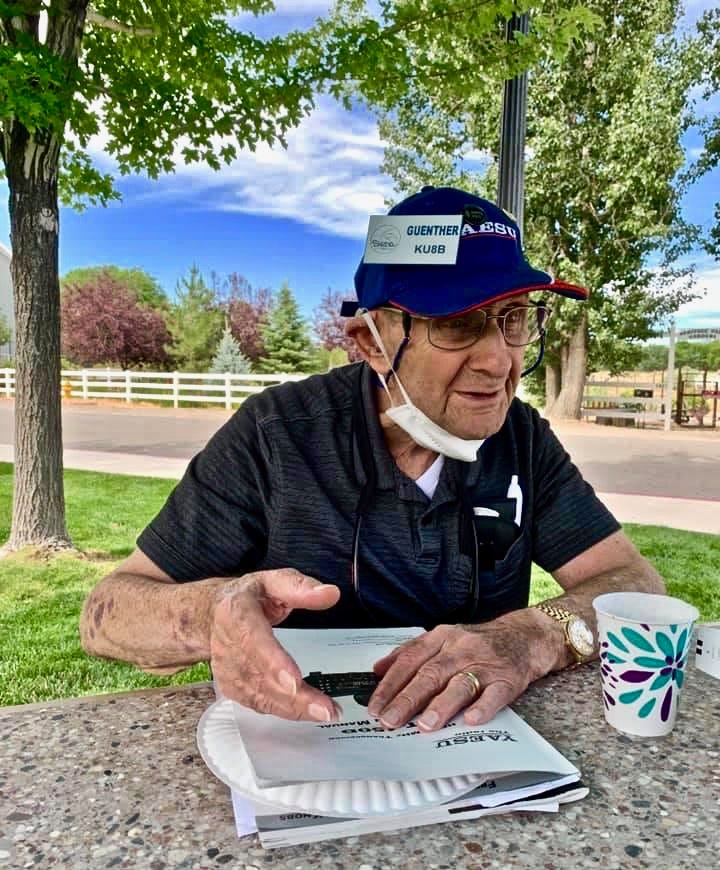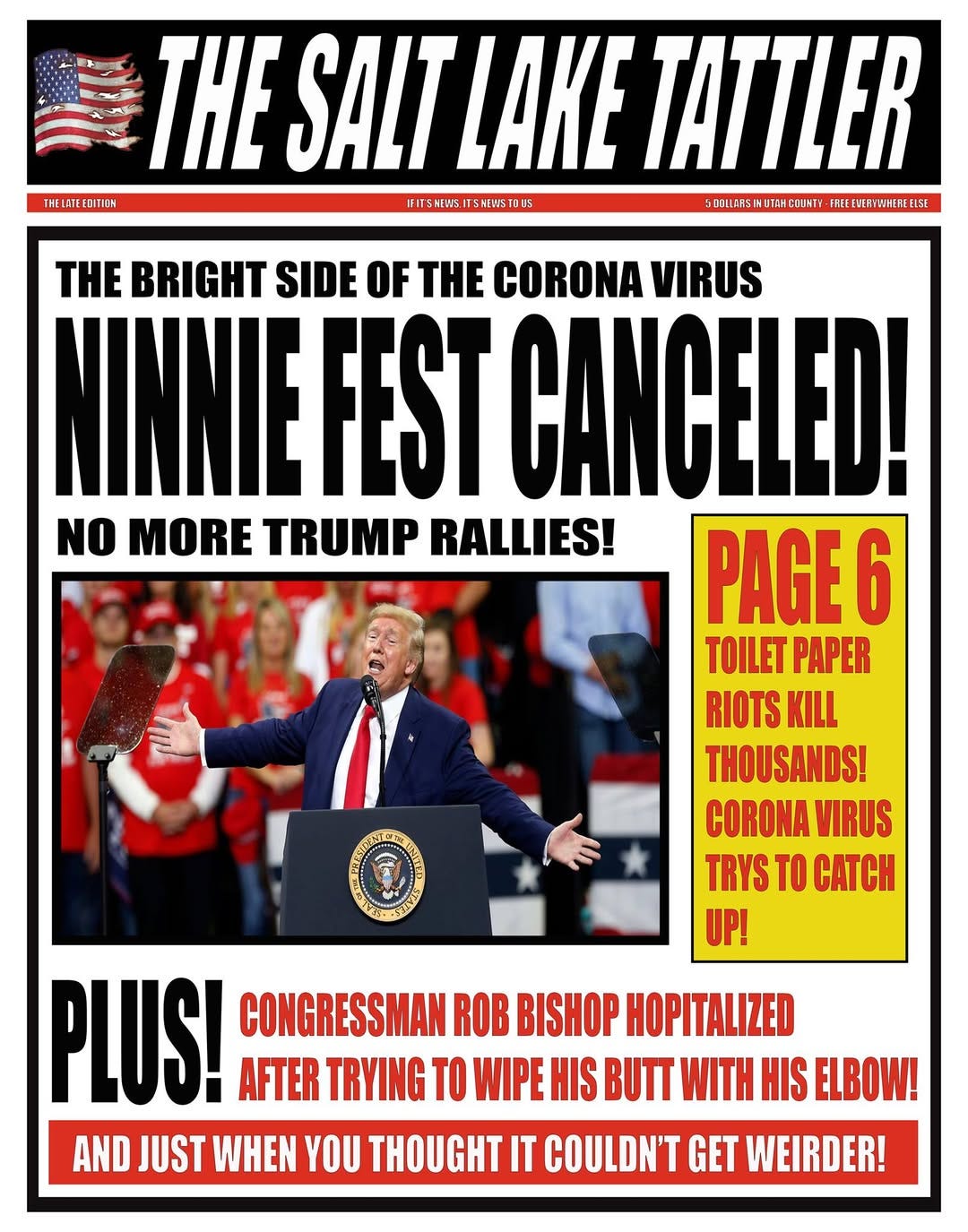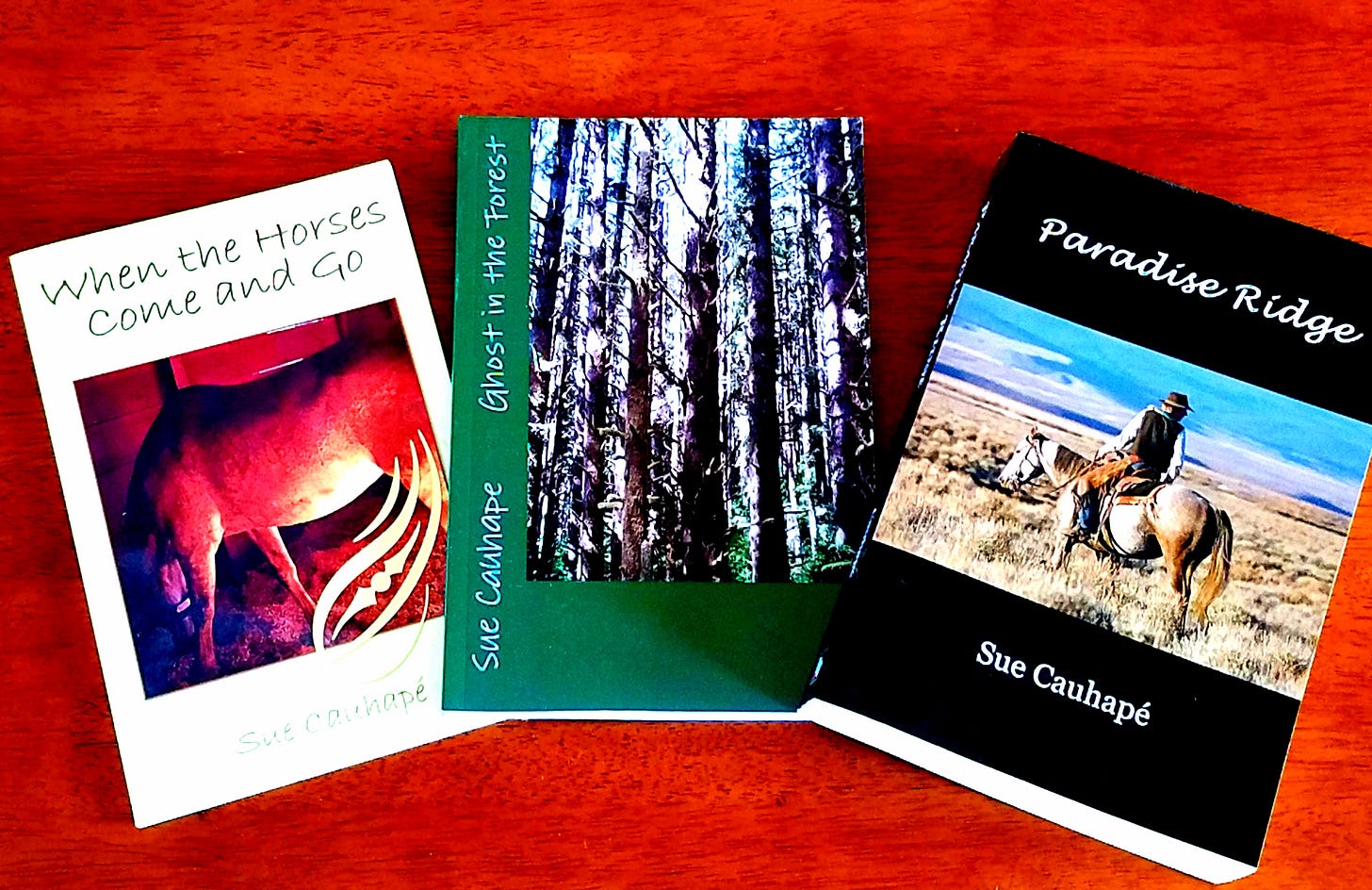March 17, 2020: The Day the Earth Stood Still
Can Americans regain the positive lessons learned from COVID lockdown to help us deal with the chaos we are experiencing as fascism destroys our country's soul.?

We all remember when the whole world came to a halt. We were confined to our homes by government decree. Wearing masks irritated us. Air travel ceased. Children stayed home from school and parents were arrested for playing with them in parks. Workers were deemed essential or non-essential. Toilet paper became the new currency.
While doctors and nurses struggled against the most virulent disease since the Spanish Flu, a sly-faced drug researcher, who denied financial gain from an untested vaccine, butted heads with a resistant president who challenged science with his own theories.
Some wailed it was havoc on a Biblical scale. Others remembered the horrors of mid-20th Century dystopian literature by George Orwell and Aldous Huxley. Each day, each bit of news elevated the crisis. Yet, as the skies cleared of smog and the streets echoed with the hoof beats of wild animals, some predicted the doom of our species.
As with every disaster that regularly hits populations around the planet, however, the human spirit prevailed. We invented new ways to live with this latest catastrophe. People mastered communications technologies to meet face-to-face for meetings, entertainment, and socializing. Businesses discovered new ways to serve customers from behind closed doors. While some displayed artisan sourdough loaves online, meal delivery services emerged, making it possible to never cook at all. Home improvement projects flooded retailers with demands for lumber, paint, and screws.
Soon, wearing masks became a fashion statement. People either made their own fanciful faces or ordered wardrobes of masks online. Ill-fitting or annoying masks inspired ways to circumvent mandates by stretching them under the chin, letting them slide under the nose, and, my favorite, dangling the mask from an ear. Whenever I was outside or in my car and wearing a mask was ludicrous, I looped it around my wrist. My Dia de Los Muertos mask had the ironic affect of bringing smiles and compliments.
Streaming movies and music distracted us from boredom. More creative souls shared their music from balconies, inspiring neighbors to join in a jam session. We all made do, but many were forced to endure small spaces with abusers with no means of escape.
The ridiculous direction arrows in store aisles managed to piss people off more than necessary. The two-meter distancing made some sense, but when I dipped quickly to grab a can of soup in front of a couple who had planted themselves firmly in place, I thought they were going to call the police. These little edicts made people angry and more confused.
Families realized they could balance work and personal lifestyles. Parents learned how much fun they could have with their children. Home school became creative and many dropped out of the public school system all together. Being able to work from home helped family members with health conditions or, as in our case, with a newborn baby needing constant attention.
Elderly people became the most vulnerable victims, making lockdown more difficult for them and their families. Many died alone. Visitors were forbidden unless they could stand outside windows where their loved ones could see and hear them. Our friend, Guenther,1 was confined to his room after every doctor's visit away from his facility. One day, a ham radio friend took him to the park where he could participate in the annual Field Day with hams all over the western U.S. Luckily, he had a radio in his room for local chats.
After a year, we were freed from lockdown. Many resisted returning to work and schools. Education administrators worried that children had lost a year's instruction and would never catch up. What they didn't understand was that children devising their own curricula prepared them to guide their own futures. Even though a new epidemic of loneliness developed and face-to-face interactions suffered, many found resiliency and strength while exploring their own interests.
We also examined our relationship with institutional control upon our lives. News media reported episodes of parents handcuffed in front of their children when playing in the park. People wore masks while driving alone. Every surface touched by fingers received a spray of bleach. Huge displays of hand sanitizer and wipes filled stores' "seasonal" aisles.
After quarantining with COVID for over a month, I decided I was safe enough to visit the drug store. While standing in the parking lot, I took a call from a health department nurse who was shocked that I was out and about. Not able to decide what should be done with me, she referred my case to her supervisor. That woman wisely pronounced me free of my Typhoid Mary status. I was free to buy toilet paper.

Another incident produced a troubling debate with myself. While waiting to pick up our pizza, I watched a worker cutting and boxing pizzas after they had emerged from the oven. He wore his mask under his chin instead of over his mouth and nose. It really rankled and I was tempted to whip out my phone to video his blatant disregard for public health and report him to the health department. Whoa! Hold on there! That little voice in my head screamed. Who are you? Big Brother? This is Orwellian tattling. Did I really want to subject this business to closure because of one jerk's defiance or do my bit to protect public health? This is the level of insanity that grew from institutional edict. To some, the answer would be crystal clear. My little voice wasn't so sure. The insanity grew by the day.
Millions died before various fast-tracked vaccines were released. With these now available, choice to receive or not was removed and many died when denied medical care if they refused the vaccines.
After watching his mother almost die from vaccine side effects, a friend of ours didn't want to risk the same fate. His doctor refused to see him in his office about a worsening digestive problem. Finally going to the ER, where they had to treat him, it was too late to effectively treat his stomach cancer. He died with a couple of weeks of diagnosis. Perhaps my readers will think he had it coming, but medical sovereignty is a battle we all face for a variety of reasons.
Workers whose health remained good while at home were forced to return to job sites, thus exposing them to new versions of the virus. Healthy young people succumbed to side effects of the vaccines. Alive and vibrant one minute; dead the next.
Controversies increased regarding the development of these vaccines. How did they come out so quickly? It usually took years to approve medications. And why, only months before COVID became known, did Bill Gates held a symposium to discuss responses to exactly this kind of scenario? It was all just too suspicious.

One side effect that still plagues us is distrust of government and corporate collusion. Social media rang with rants from basement pundits, celebrities, and rank and file users of platforms that supported both sides of the argument.
Most of us have pushed the pandemic of 2020 back into the dark where it belongs. Or does it belong in the shadows of our memories? Perhaps we ought to observe March 17th as a day to ponder which positive changes did we retained and which were relinquished as unproductive. As wildlife retreats back to unpeopled spaces and the skies cloud up again with smog, is it too late to reclaim what we gave up for the sake of commercial stability?
Like other eras of infamy that we officially remember, such as the World Wars, 911, and the Holocaust, we must never forget the way people were exposed to a killer virus and our leaders used fear to press us into submission. As individuals, we need to assess how much we will allow our leaders and media to manipulate us, and how possible it is to exercise personal sovereignty. As citizens, how far can we act effectively before our protests become groupthink.
If you enjoyed this post, feel free to explore other writings in the Ring Around the Basin Archive. I also love to read your comments, so please share your thoughts. Let’s start a conversation. And if you wish to support my writings, please consider subscribing or upgrading to a paid subscription. It’s now only $50/year. Even better, I would appreciate it if you could share Ring Around the Basin with your friends. Thank you!
All my books, Paradise Ridge, When the Horses Come and Go, and Ghost in the Forest are currently available on Kindle. Ghost in the Forest, is also available in paperback. Paradise Ridge is out-of-print, but the Kindle version is re-edited and better quality.
Guenther grew up in Nazi Germany. I asked him if he was part of the Hitler Youth and if he was forced to join it. He said that the Hitler Youth movement was just part of school. It was incorporated into the school curriculum.








"...we must never forget the way people were exposed to a killer virus and our leaders used fear to press us into submission." Fear is a powerful motivator in any crisis ( or non-crisis). Our leaders use (have used) it very effectively, but they are not the only influencers or fear-mongers we are subjected to. Right? Vigilance, folks.